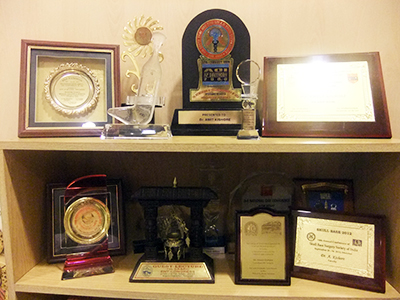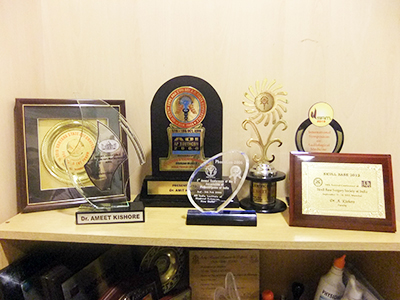



A myringotomy is a tiny incision made in the ear drum under a surgical microscope using a special knife or the laser. This hole would heal and close within a few days if left as such. To prevent this, a tiny tube called ventilation tube / grommet is placed in the hole to keep it open and allow air to reach the middle ear space.
This procedure is recommended when a person experiences repeated middle ear infection (acute otitis media) or has a hearing loss caused by the persistent presence of middle ear fluid (otitis media with effusion). Although, these conditions most commonly occur in children, they can also be present in adults.
Before the operation you would have had a consultation with an Ear Nose and Throat Surgeon. The need for a myringotomy and ventilation tube insertion would have been discussed taking into consideration previous medical treatment and hearing levels.
Sometimes the ENT surgeon will recommend removal of the adenoid tissue (adenoidectomy) when ventilation tubes are placed. Research indicates that removing adenoid tissue along with placement of tubes can reduce the risk of recurrent ear infection and the need for repeat surgery.
The operation is carried out under general anaesthetic in children and a local anaesthetic in adults (in the out patient). A myringotomy is performed under the microscope and the fluid behind the ear drum (in the middle ear space) is suctioned out. The ventilation tube is then placed in the hole.
These tubes can be made out of metal or teflon. There are two types of ear tubes: short-term and long-term. Short- term tubes are smaller and typically stay in place for six months to a year before falling out on their own. Long-term tubes have flanges that secure them in place for a longer period of time.
Recovery is extremely quick after this procedure. Adults who have had this done under local anaesthetic can walk out of the out patient immediately after. Children can be discharged the same day.
There is usually no or minimal discomfort in the ears. Any hearing loss due to fluid improves substantially immediately after the procedure.
You may be asked to use antibiotic ear drops for a few days after.
We recommend you prevent water from entering the ears during swimming by using ear plugs or cotton wool smeared with Vaseline. This is not usually necessary while bathing.
As with every operation there is always a risk of complications, although the risk is extremely low with this procedure.
Ear infections can occur in the ear or around the ear tube. However, these infections are usually less frequent and are easier to treat often only with ear drops.
If an ear tube expels from the ear drum too soon, fluid may return and repeat surgery may be needed. Ear tubes that remain too long may result in perforation.
This information leaflet is only a guide to tonsillectomy and does not replace a full and detailed discussion with you surgeon regarding your condition, the benefits and risks of the operation, and other alternative treatment available.
For Appointments : Secretary : +91 9654518169
Dr Suresh Naruka, Associate ENT Consultant : +91 9654835227
Dr Ameet Kishore, Sr ENT Consultant : +91 9871729898
? Adventis (Advanced ENT services)

My experience with cochlear implant My name is Gerald Andrew; I am 29 year old male Tanzanian. Last year (2009) was one of the most memorable for me. It’s when I received my cochlear implant at Apollo hospital in New Delhi after Read More »
I wanted to thank you immensely for the help that you provided to my father and thus to our family by giving him the gift of hearing. He is now recovering well and is able to hear all the conversations as normally as anyone else can.
My father, underwent a Stapedotomy ear surgery to correc ct his hearing problem, first in one ear and then 6 months later in the other. The result of the surgery was better than expected and post full recovery my father is able to hear very well. Read More »
My experience with cochlear implant My name is Gerald Andrew; I am 29 year old male Tanzanian. Last year (2009) was one of the most memorable for me. It’s when I received my cochlear implant at Apollo hospital in New Delhi after more than three years of hearing loss. Everyone’s experience with coch hlear implant is a bit different therefore, am happy to share mine with anybody out there, from the moment I lost my hearing, my experience during my stay at Apollo Hospital and one year later on, after cochlear implant. Read More »